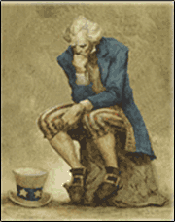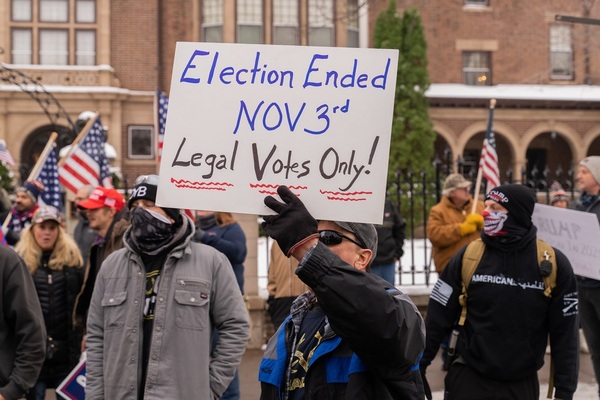
–>
September 15, 2022
As Heritage Foundation President Kevin Roberts notes in his introduction, the primary question addressed by Lucas’s book, The Myth of Voter Suppression. The Left’s Assualt on Clean Elections is this: “[W]hy does the Democratic Party oppose free, fair, and credible elections?” The short answer the author provides is that Democrats are much better at cheating and rigging elections than Republicans. Tammany Hall, the Chicago Daley machine, and Missouri’s Pendergast organization provide three historical examples. That’s not to say Republicans never engage in electoral shenanigans, of which cases Lucas provides several examples. But it is Democrats who consistently oppose measures designed to increase election integrity — measures that even a former Democratic president, Jimmy Carter, advocated in 2005 when serving on a bipartisan commission co-chaired by former GOP Secretary of State James Baker.
‘); googletag.cmd.push(function () { googletag.display(‘div-gpt-ad-1609268089992-0’); }); }
Two major recommendations of that commission were voter IDs and restrictions on mail-in voting, the latter being a process riddled with invitations to fraud, especially when corrupt voter rolls include dead persons, duplications, and folks who’ve moved elsewhere. Opportunities for fraud are multiplied when, as in California, ballot harvesting is permitted. Under this execrable practice (also known as vote trafficking) almost anyone can take custody of and deliver mail-in ballots to a mail box or voting receptacle — a “chain of custody” nightmare that would have made Mayor Daley’s day in 1960.
By contrast, the top Democrat priority in 2021, HR-1 (mendaciously labeled a “voting rights” bill) would have eliminated most state voter ID laws, expanded ballot harvesting, mandated Election Day voter registration, and required no-excuse absentee voting in all states. Ironically, in 1977, first-term Delaware Senator Joe Biden opposed Election Day voter registration because it “could lead to a serious increase in voter fraud.” Fortunately, this “For the People” bill didn’t survive a Senate filibuster but, as Lucas explains, Democrats continue to press for legislation that would essentially federalize elections and thus make their legitimacy as questionable as the COVID-rationalized measures that plagued the 2020 election.
Lucas also notes that the whole idea of “voter suppression” is a myth designed to smear legal measures like voter IDs. No law actually mentions the term “voter suppression,” and the author cites numerous examples that debunk the Democratic narrative that ID laws diminish election participation. Indeed, most electoral evidence suggests ID laws actually increase participation and buttress voter confidence in election integrity. It is, of course, true that laws designed to increase election integrity do “suppress” fraud, which is doubtless a major reason Democrats oppose such laws that are common in Europe. Case in point:  “Today, Democrats routinely call seeking an accurate accounting of eligible voters ‘suppression.’“ Such an accounting would obviously “suppress” the votes of 25,975 dead people who were discovered on Michigan’s voter rolls, stiffs who would obviously prefer to vote by mail.
“Today, Democrats routinely call seeking an accurate accounting of eligible voters ‘suppression.’“ Such an accounting would obviously “suppress” the votes of 25,975 dead people who were discovered on Michigan’s voter rolls, stiffs who would obviously prefer to vote by mail.
‘); googletag.cmd.push(function () { googletag.display(‘div-gpt-ad-1609270365559-0’); }); }
A trip down memory lane reveals that political bosses have typically made arguments akin to those now proffered by the “voter suppression” crowd. Tammany Hall opposed cleaning up voting roles in New York City (where more votes were cast than there were available voters). That same corrupt Big Apple machine also “worked to get prisoners released to ensure they voted and even established a ‘naturalization mill’ to instantly turn immigrants coming off boats into voters.” Other strong-arm organizations campaigned against the secret ballot, which lessened their power to intimidate voters. Then there was 1864, when “Democrats tried to use mail-in voting to defeat Republican President Abraham Lincoln.” Today, the Brennan Center for Justice, along with the queen of the “voter suppression hysteria industrial complex,” Stacey Abrams, serve as the foremost Democratic voices for corrupt elections.
Lucas provides scores of examples of fraud that actually affected the outcome of elections, thus disproving the Democrat-Media mantra that fraud in American elections, and especially the 2020 election, is almost nonexistent. While Lucas doesn’t assert the 2020 POTUS election was stolen from President Trump, the examples he provides (including an eye-opening analysis by Professor John Lott of mail-in voting in adjacent, typically homogenous precincts) make it clear that that election was far from “the most secure” in American history. I should note that Lucas’ book is not and does not claim to be a thorough analysis of possible fraud in that election, but in my view the information he does provide indicates that its outcome could easily have been affected by the widespread use of mail-in ballots whose signatures weren’t carefully scrutinized and whose contents were frequently submitted for tabulation via vote harvesting.
Given this evidence plus a whole chapter listing organizations that provide an endless supply of money and energy for the Democrat HR-1 election fraud agenda, I question the brief assertion made in Lucas’s first chapter that neither voter fraud or voter suppression currently pose an existential threat to the republic. The $400,000,000 supposedly nonpartisan “Zuckerbucks” that went overwhelmingly to Democrat precincts is only one of many 2020 illegalities that makes this “existential” observation less than reassuring. Indeed, the conclusion I drew from reading Lucas’s scrupulously researched analysis of election laws and practices is that voter fraud (not voter suppression) is an existential threat to the republic right now.
The original Godfather movie is famous for the line, “Leave the gun; take the cannoli.” In this case I’d say, “Read the book but leave out the not-currently-an- existential-threat assessment.”
Richard Kirk is a freelance writer living in Southern California whose book Moral Illiteracy: “Who’s to Say?” is also available on Kindle
Image: Chad Davis
‘); googletag.cmd.push(function () { googletag.display(‘div-gpt-ad-1609268078422-0’); }); } if (publir_show_ads) { document.write(”
<!– if(page_width_onload <= 479) { document.write("
“); googletag.cmd.push(function() { googletag.display(‘div-gpt-ad-1345489840937-4’); }); } –> If you experience technical problems, please write to [email protected]
FOLLOW US ON
<!–
–>
<!– _qoptions={ qacct:”p-9bKF-NgTuSFM6″ }; ![]() –> <!—-> <!– var addthis_share = { email_template: “new_template” } –>
–> <!—-> <!– var addthis_share = { email_template: “new_template” } –>





